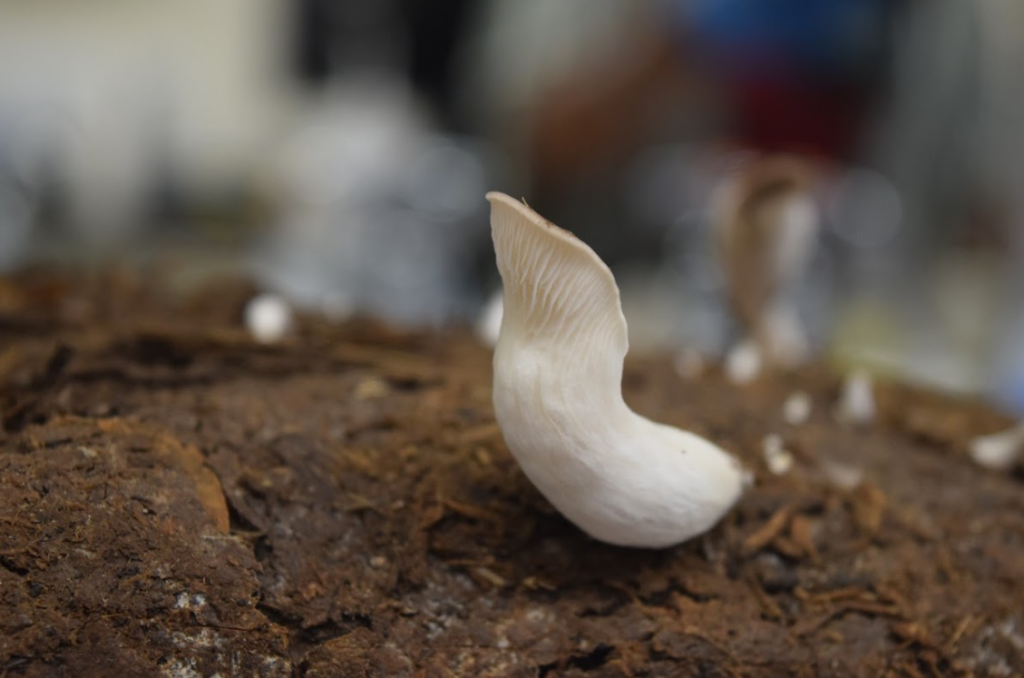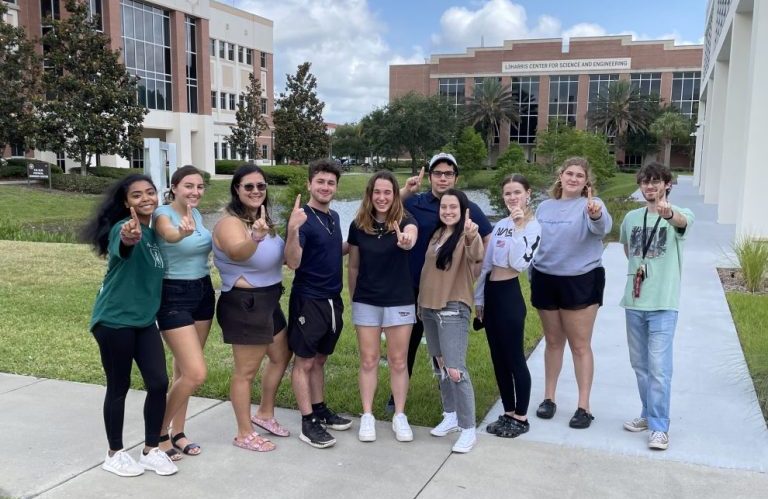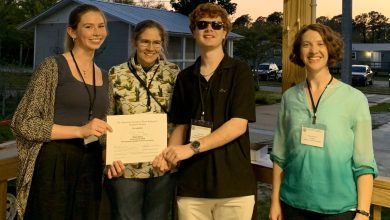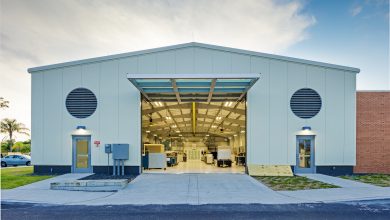Student Team Wins Best in Show at Plant Moon/Mars Challenge
A team of Florida Tech students won Best in Show in the “plant growth” category in the Spring 2022 Plant the Moon and Plant Mars Challenge for their project, “Incorporating Edible Decomposers into Sustainable Bioregenerative Life Support Systems for a Martian Colony.”
Team leaders Caitlyn Hubric and Lea Adepoju and members Francesca Afruni, Wesley Kozan, Frances Edmonson, Allison Meyer, Joselyn Al-Najim, Markus Laupstaud, Kayla Ross, Anthony DiGiovanni and Vittorio Ferrucho were tasked with developing a plant-growth experiment to help add to our understanding of how we can utilize materials already present, like Martian regolith, to grow crops for future human missions.
“Learning the biological capabilities of Martian [regolith] may help sustain human life on Mars,” the Institute of Competition Sciences, which organized the competition, wrote.
For their project, the Florida Tech team unleashed decomposers – organisms capable of breaking down organic material, thus making nutrients available for reuse by other organisms – into a bioregenerative life support system design they are proposing that is supported by a mix of regolith and organic substrate. The substrate consisted of a homogenous, blended mixture of sawdust, wood chips and assorted plant waste collected from the grounds crew at Florida Tech and the student-run Ethos Garden. The team used whatever plant material was available to try and replicate the idea that a colony will be using whatever materials is available to them. For decomposers, the team opted for the edible variety: Pleurotus ostreatus, or the pearl oyster mushroom.
“We propose that involving edible decomposers into BRLS systems is an efficient method of recycling valuable organic and inorganic wastes for a colony’s ecosystem, while also introducing a supplemental nutrient source for colonists,” the team wrote.
The results? Each of six bags filled with various mixtures of substrate produced viable mushrooms, demonstrating they can be grown in regolith-substrate mixtures with varying success rates. When compared to the control, the bags with a higher regolith concentration had less successful growth as well as a decrease in ability to decompose.
“Though the bags with an increased regolith to substrate ratio underperformed during the grow period, they still successfully provided viable offspring, further proving that P. ostreatus can be grown in regolith-substrate mixtures,” the team concluded.
The results from the experiment were shown to NASA scientists and scientific evaluators, who selected the Best in Show projects.






